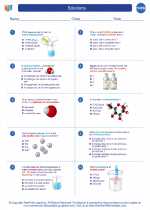Heredity: An Overview
Heredity refers to the passing on of traits from parents to offspring. These traits can be physical characteristics (such as eye color or height) or genetic traits that influence susceptibility to certain diseases.
Mendelian Genetics
Gregor Mendel, an Austrian monk, is known as the father of modern genetics. His experiments with pea plants in the 19th century laid the foundation for our understanding of heredity. Mendel's laws of inheritance, including the law of segregation and the law of independent assortment, form the basis of classical genetics.
Key Concepts in Mendelian Genetics:
- Genes: Units of heredity that are passed from parents to offspring.
- Alleles: Different forms of a gene that can occupy the same locus (position) on homologous chromosomes.
- Genotype: The genetic makeup of an organism, often represented by letters (e.g., AA, Aa, or aa).
- Phenotype: The observable traits or characteristics of an organism.
- Punnett Squares: A tool used to predict the possible genotypes and phenotypes of offspring from a genetic cross.
Modern Genetics
Advancements in technology have led to the discovery of DNA, the hereditary material that carries genetic information. The study of heredity has expanded to include molecular genetics, population genetics, and the study of complex traits influenced by multiple genes and environmental factors.
Key Concepts in Modern Genetics:
- DNA and Genes: The structure of DNA and the role of genes in directing the synthesis of proteins and controlling cellular functions.
- Chromosomal Abnormalities: Disorders caused by changes in the number or structure of chromosomes, such as Down syndrome or Turner syndrome.
- Genetic Engineering: Manipulation of an organism's genetic material to introduce desirable traits or correct genetic disorders.
- Genetic Counseling: The process of providing individuals and families with information on the nature, inheritance, and implications of genetic disorders to help them make informed decisions.
Study Guide
To effectively study heredity, it is important to grasp the fundamental concepts and principles of genetics. Here are some key points to focus on:
- Understand the basics of inheritance, including Mendel's laws and the concepts of genes, alleles, genotypes, and phenotypes.
- Learn about the structure and function of DNA, as well as the processes of DNA replication, transcription, and translation.
- Explore the different patterns of inheritance, such as autosomal dominant, autosomal recessive, X-linked, and mitochondrial inheritance.
- Examine the impact of genetic mutations and genetic variation on traits and diseases.
- Consider the ethical, social, and legal implications of genetic advancements, including genetic testing and gene editing technologies.
By mastering these concepts and staying updated on the latest developments in genetics, you can gain a deeper understanding of heredity and its significance in the world of biology and medicine.



